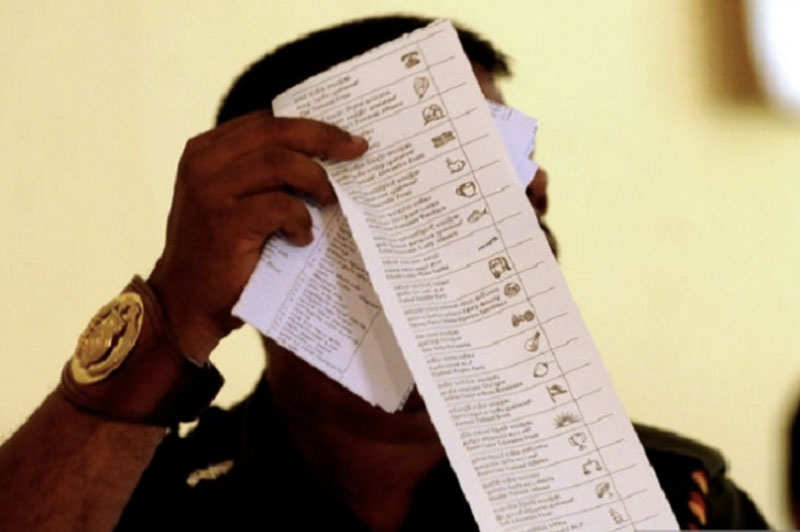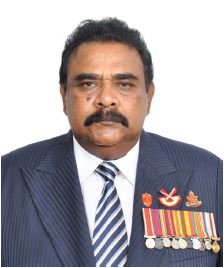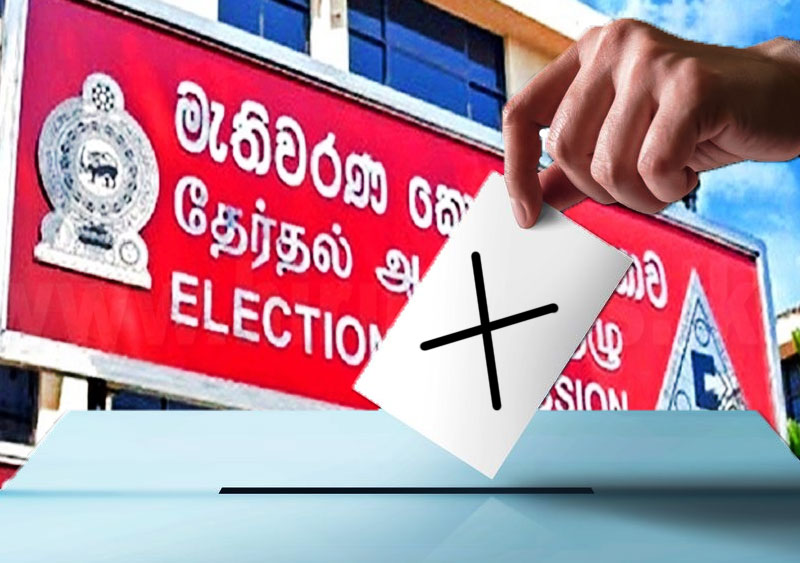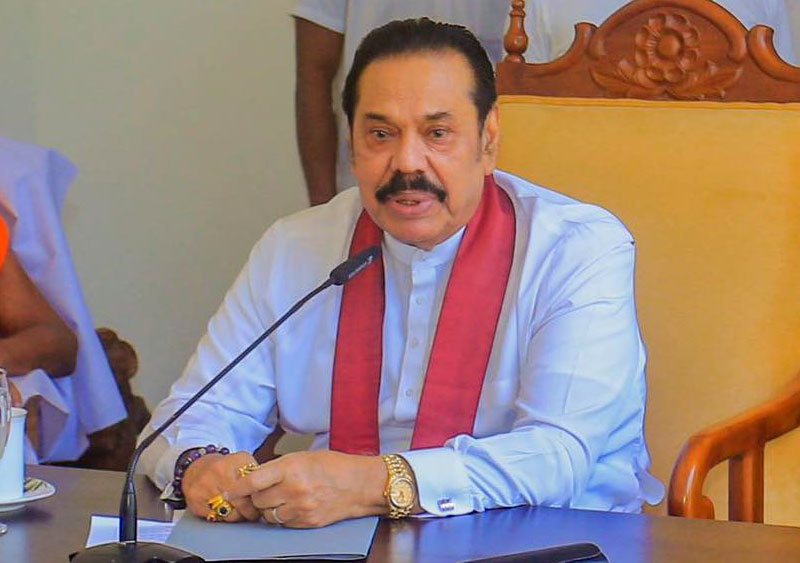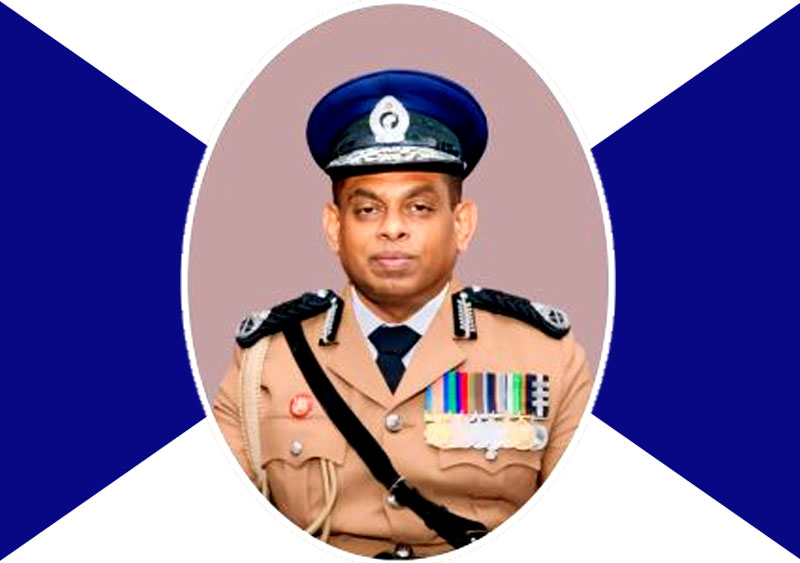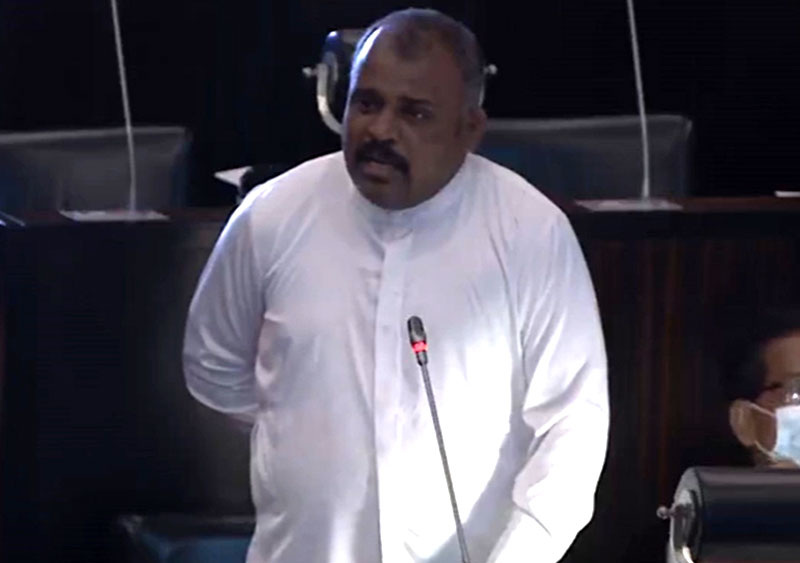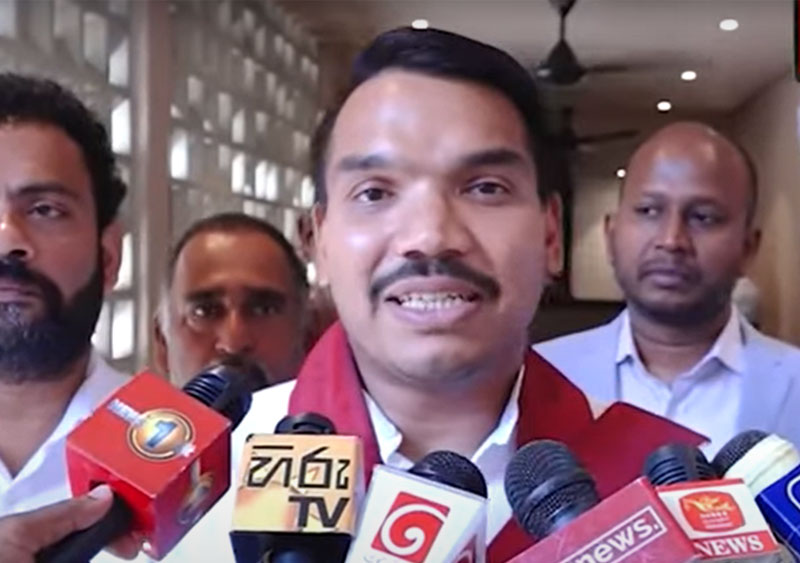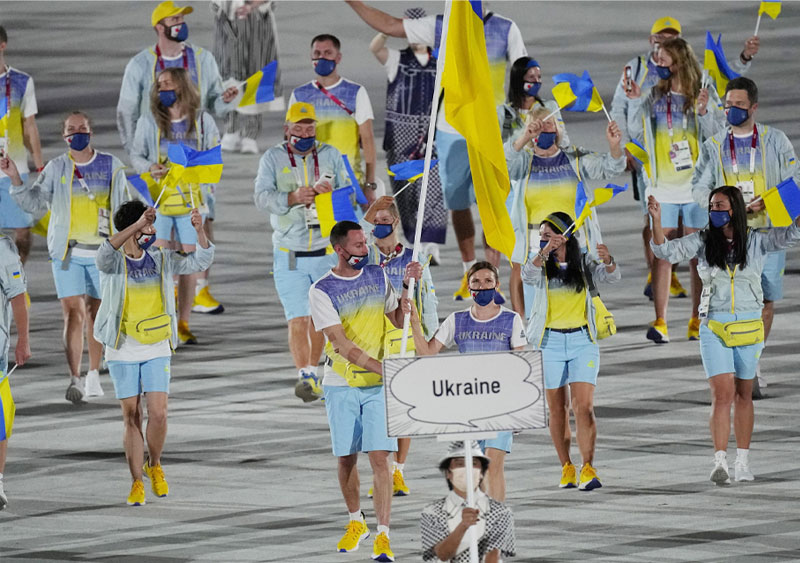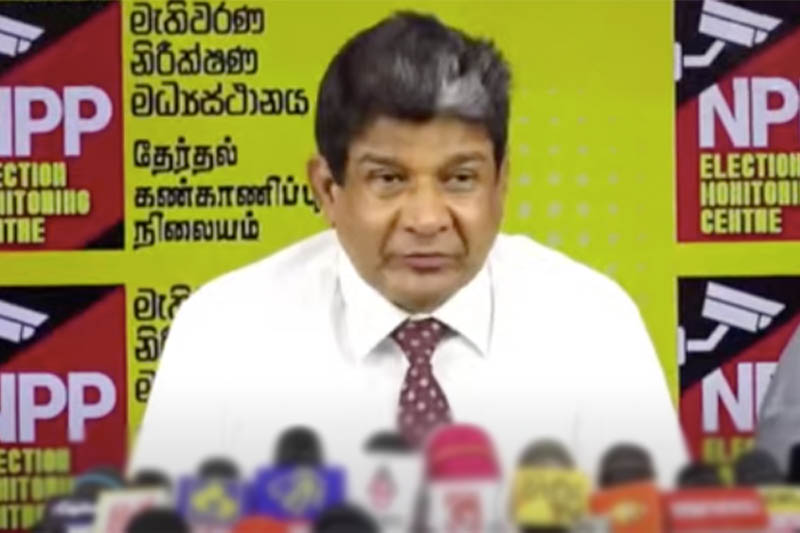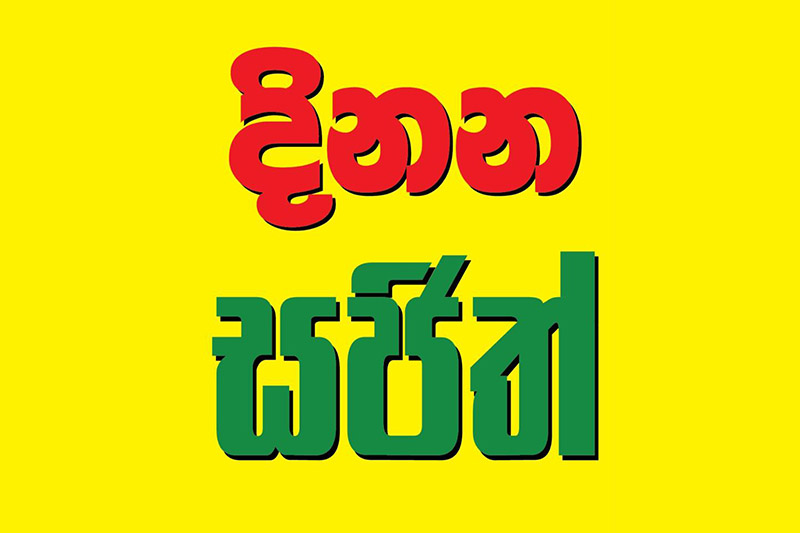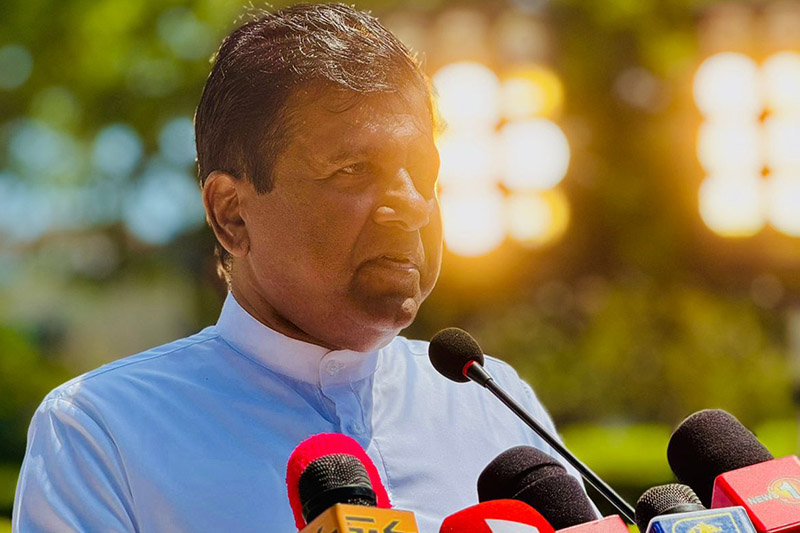By Col. (Rtd) W.M.R.Wijesundara
I filed a Writ petition seeking an order to suspend all activities related to the Local Government Election of 2023, on 2nd January 2023. It is now being postponed to 23rd February 2023 for consideration.
As the petitioner of the Writ application filed in the Supreme Court of Sri Lanka against conducting the LG polls during this financial crisis period, I write this article for better understanding of the people of the country as to why I have taken such a step. I firmly believe "Not to fear standing alone for a cause you believe is correct."
Challenging my application, three intervention petitions filed seeking the dismissal of the writ. As it is, I am anxiously awaiting the final verdict of my Writ application. However, on 10th February, the Election commission had officially informed the Supreme Court that they have attended to all the preliminaries to conduct the 2023 Local Government elections on schedule. Further to this, as at today, the situation fluctuated and the Government Printer has stated that if funds are not provided ballot papers will not be printed. This indicate the seriousness of the crisis we are faced with, which is beyond our control.
However, I should state that holding the timely elections is a foremost responsibility of any democratic Government. It is the democratic right of the people. But if the country cannot financially or otherwise afford to do so due to unavoidable circumstances what should be the alternative?
I firmly believe then we have to wait until such time that it is conducive. There are instances where the local government elections in the past had disrupted the peace and harmony of the country and caused huge financial losses to the government in protecting the peace and the people of the country. At this juncture, today the most important factor is that the country needs social harmony and peace mainly in order to get out of this economic crisis which will enable us to stand on our own feet.
Treasury Secretary Mr.Mahinda Siriwardena had filed an Affidavit on 19th January 2023, explaining the financial situation of the government and an update on the same was also provided to the Attorney General through a report dated 24th January 2023 to further clarify the financial situation of the country and the cash flow. In order to provide additional and updated information to the Supreme Court he submitted an affidavit on Thursday the 9th, firmly stating that sourcing funds for the election has become a challenge. Due to the inability of obtaining bilateral and multilateral loans if money is printed for such purpose, it would only result in further inflation and there could be a further economic downturn which will end up in a disaster.
Every one of us is well aware of the fact that the country continues to struggle to recover from the severe and unprecedented financial crisis. This did not happen overnight. It is a series of events taken place since the Independence.
The most serious economical draw backs of the country are the Economical costs of conflicts and Armed struggles. Since the independence till 1971, country did not spend much on its defence and conflict management. Since then, the economic costs to the country as a result of public unrest, Armed struggles and insurgencies are as follows.
a) 1971 – Armed insurgency, the economic cost was over SLR. 455 million
b) 1987-1990 – Armed Insurgency, the economic cost was SLR. 246 billion
c) 1979-2009 – War Against the separatists Terrorists USD 300 billion (As at today SLR One Hundred and Nine thousand five hundred billion).
As a result of Armed Insurrections and the LTTE Eelam war, the economic development process of the country was stalled and the country veered towards the major economic crisis we are facing today. The unprecedented cost to the economy we had to bear in the last 52 years is something that very badly reflecting in our economy today.
The consequences of this long period of violent conflicts and civil wars are felt in every sphere of social and economic life today. The conflicts have brought about a large escalation of defence expenditure to maintain defence services from 1971 to date, which is mandatory.
Another drawback is the Covid pandemic which turned out the lives of people and the economy upside down. COVID-19 has effects adversely for Sri Lankan economic income earning sector such as tourism, food and agriculture, exports of apparels and textiles and small and medium scale enterprises.
The Easter Sunday Bombings in Colombo and Negombo, resulted in the deaths of 250 people, of which 42 were foreign nationals travelling to Sri Lanka as tourists. Many of the establishments across Sri Lanka were forced to pull down their shutters for days in the aftermath of the incident. Most of the countries were hasty in putting out travel advisories that warned their citizens to not travel to Sri Lanka. Tourists who were remaining, existed in large numbers.
In 2018, tourism provided US$ 4.4 billion in earnings to the Sri Lankan economy and contributed to 5.6 percent of the nation’s GDP, but this estimate came down to a paltry 0.8 percent in 2020, the year when the COVID-19 pandemic began effecting Sri Lanka. The onset of the pandemic also led to a 50 percent revenue drop in 2020, and a consequent fall in the tourist numbers.
Sudden price increase of essential goods in the market such as turmeric powder, sugar, gas, bakery items were unbearable for the most of the people. Further this got aggravated with people facing serious problems such as unemployment and economic recession. With the economy frozen during lockdown, the entire economic mechanism involving agriculture, manufacturing and service sectors were drastically affected. The huge cost of COVID management which was unprecedented had hampered the implementation of money generating development activities.
Undoubtedly the severe economic repercussions we are facing today is as a direct outcome of this and we may have to face more difficulties in the long term. The other major contributory factors were the deep tax cuts in fulfilment of an election promise which led to the loss of approximately one million taxpayers between 2020 and 2022. The decision to completely ban the import of agrochemicals and fertilizers and pesticides in farming, and also to promote eco-friendly sustainable organic agricultural systems was another economic blunder.
I have identified at least three significant costs that must be considered and addressed.
a. All civil wars and the reason for them
b. The brain drains since independence and why it is continuing even today. They gained their qualifications from Sri Lanka and contributing for the development of their adopted countries. This would have cost the government billions and billions of Rupees. This brain drain has to be stopped
c. Consecutive trade union action which effects adversely the smooth functioning of government institutions as well as the tourism industry.
Although there are improvements in some areas, including availability of essential items such as fuel, LP gas, increase in exports as well as decline in inflation etc. the desired expected economic stability is yet to achieved. The government is finding it extremely difficult to maintain the stability that they have achieved today. Scarcity of much needed foreign exchange and rupee liquidity has made it extremely difficult to obtain finances for essential items like pharmaceuticals, food, fuel, hospital equipment and fertilizer etc.
In January 2023, the cash flow of the treasury indicated as government revenue amounted to Rs. 180 billion. However, the recurrent expenditure was Rs. 365 billion, which included salaries Rs. 87 billion, pensions and samurdi Rs. 30 billion and other mandatory recurrent expenditure Rs. 19 billion. The interest payments was Rs.227 billion and the debt repayments were Rs.151 billion. The total cash deficit in January was Rs. 357 billion. At the same time the unpaid bills in hand of the government, carried forward from end 2022 amounting to about Rs. 107 billion. As it is we can see the magnitude of the seriousness of the government cashflow. Additional expenditure over and above these expenditure to the government will result in inability to pay these payments which will have negative implications on the economic and social stability.
The most sensitive from my point of view is the unpaid gratuities of the pensioners which amounts to Rs. 17.3 billion. Unfortunately, it is observed that the gratuity payments have not been made since April 2022 due to serious cashflow issues.
On top of this, can we afford to incur more expenditure at this juncture to hold the Pradeshiya Saba elections, which is estimated at SLR 10 billion.
At present there are approximately 8711 Local Government members including Municipal councils, Urban Councils and Pradeshiya Sabas. It cost minimum Rs. Two thousand one hundred and seventy-seven million seventy-five thousand (2177,75,000) as allowances per month and about Rs. 2.7 billion per year.
The Administrative structure in Sri Lanka has 9 Governers, 9 Chief Ministers, 25 Government District secretaries, 331 Assistant Government Agents, 14,190 Grama Niladharies, 24,000 Samurdi officials, and numerous district development officers.
In addition to these, we have 29 Municipal Councils, 36 Town Councils, 9 Palath Sabhas and 276 Pradeshiya Sabhas. Taking this unbearable administrative structure in to account, the government-initiated action to have electoral reforms to curtail the large sums of costs to the public per annum to maintain and sustain such bodies under the present system.
In view of the electoral reforms, steps were taken to amend the local government elections ordinance No.53 of 1946. It includes
a. control of election expenses
b. Reduction of members of local government
c. Increase the youth and female representation in these local bodies
d. Conduct, disclosure and transparency measures pertaining to candidates and elections.
On 10 June 2022, the United Nations (UN) had warned that the extreme economic situation in Sri Lanka could develop into a “full-blown humanitarian emergency”. Sri Lanka was successful on few fronts in the last couple of years, including its triumph in the COVID-19 vaccine rollout in 2021. Those successes have been over shadowed by several policy missteps aggravated by external factors leading to an unprecedented economic catastrophe.
It is crystal clear that one question needs careful attention: Given the current debacle in the Sri Lankan economy, the impact of the pandemic on the global economy, the Russia - Ukraine war with NATO countries involvement and most importantly the country’s low sovereign credit ratings, it will be extremely difficult for the country to seek commercial borrowings from foreign sources in the near future. The only expectation is the IMF bailout, which has often been the rescue path for Sri Lanka in its previous balance of payment (BOP) crises.
These are few of the critical financial issues faced by the government and these financial constrains make it all the more critical for the government to carefully manage its cash flow, while limiting expenditure to the most essential and urgent public services until fiscal conditions improve. Isn’t it advisable to postpone the Local Government election at least for another one year, rather than conducting local government elections at this difficult time.
Col. (Rtd) W.M.R.Wijesundara

